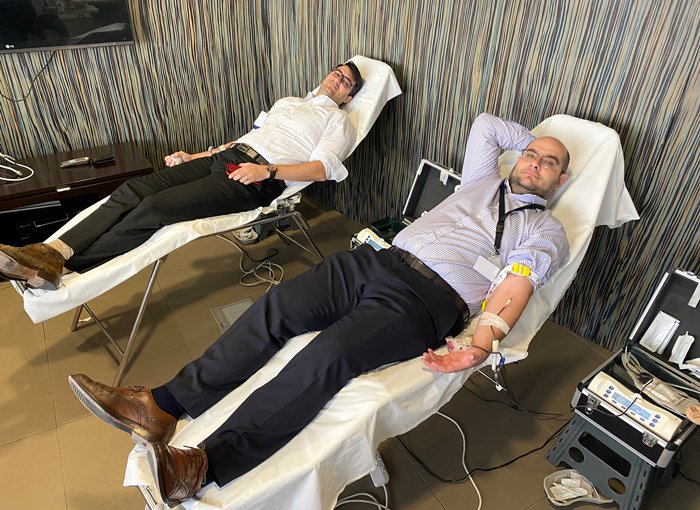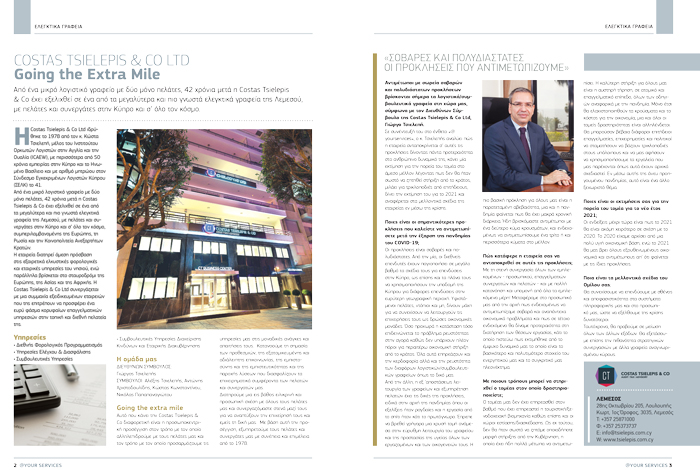Limassol – The European Union (EU) loses more than 150 billion in Value Added Tax (VAT) revenues every year, Tax Commissioner, Yiannis Tsangaris, revealed last week.
Addressing the international 20th Annual VAT Summit at Parklane, a Luxury Collection Resort & Spa, in Limassol on 15-17 May, the Commissioner added that €50-70 billion of the so-called VAT Gap, which shows the difference between the expected VAT and the amount actually collected, is attributed to companies.
Fraud
Tsangaris went on to say that cross-border yearly recovery of taxes in some member states range between 0,05% to 2,21%, compared to the average yearly amounts for which recovery assistance was requested, while Missing Trader Intracommunity (MTIC) fraud alone accounts for €40-60 billion of annual VAT revenue losses.
The Commissioner said that in an effort to combat tax avoidance and streamline operations, the Tax Department is investing heavily on digitalization, adding that “digitalization changes the way tax administrations interact with taxpayers and the manner in which data is collected.”
Tsangaris revealed that every year, member states exchange automatically with each other a vast amount of tax data covering non-residents’ income, as well as information on non-residents’ financial accounts, tax rulings and, as from mid-2018, multinationals’ country-by- country reports.
The commissioner also announced there are plans to reinforce the Tax Department with new staff.
The 20th International Annual VAT Summit, held in Cyprus for the very first time, attracted some of the world’s top VAT experts who converged in Cyprus to discuss current and future indirect tax issues.
The summit was organised by VAT Forum CV, an international partnership made up of leading indirect tax specialists based in Brussels.
Summit Agenda
The three-day event started with a welcome cocktail reception and dinner on Wednesday evening, 15 May 2019, followed by two days of high-level interactive sessions that covered such issues as taxation of trade between member states and distance sales, the effects of Brexit, the application of Distributed Ledger Technology in VAT, the 2022 VAT Action Plan and much more.
At the beginning of the event, VAT Forum President, Patrick Wille, presented to participants the wholly revamped look of the Forum and its new website, before delivering a presentation on the new VAT rules on vouchers.
Haris Hadjimichael, Head of EU Affairs and Tax Treatment with the Cyprus Tax Department, spoke about VAT Compliance: The case of Cyprus, while Chelco VAT Ltd Managing Director and VAT Forum Partner, Alexis Tsielepis, presented an overview of important cases of the European Court of Justice.
Networking
During each session, there was sufficient time to answer questions and to discuss the issues presented with the audience. The conference also offered a unique opportunity for networking.
The Summit was intended for industry professionals, such as accountants, CFOs, tax officers and tax lawyers dealing with VAT in multinational environments, VAT compliance managers responsible for VAT reporting in different Member States, VAT officials dealing with large and foreign taxable persons, VAT advisers serving multinational clients and officials from national VAT authorities.
It aimed at creating an open discussion on the latest changes to EC and national VAT legislations and the impact of these changes on businesses.
[supsystic-gallery id=’1′]



